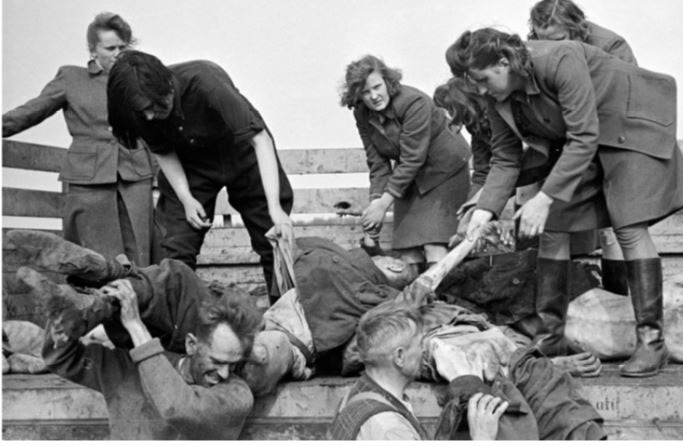 New research suggests the 70-year-old story of someone snitching to the Germans and betraying Anne Frank and her family may not be true. Evidence points to the possibility that the secret annex hiding eight Jews for more than two years may have been discovered during a raid by officers investigating ration coupon fraud.  For the last decade, researchers at the Anne Frank House have been compiling a digital data base of new discoveries. They distill facts from diaries, books, archive material and government documents. They've interviewed dozens of concentration camp survivors, Frank family members, classmates and business associates. Looking at the evidence, they ask new questions. ''The question asked has always been Who betrayed Anne Frank and the people in hiding? This explicit focus on betrayal, however, has limited the perspective on the arrest. Scenarios based on other premises have never been examined at length." Researchers took a new tactic, for the first time asking 'Why did the raid on the Secret Annex take place, and on what information was it based?" They took another look at Anne's famous diary. Particularly, what she wrote about two men she called "B" and "D" arrested for dealing in illegal ration cards “so we have no coupons.” This led researchers to Dutch Judicial records where they found two men from the building had been arrested earlier in 1944, and then released.  Since the end of World War II, at least five people have come under suspicion for betraying the hiding place at Amsterdam 263 Prinsengracht. Despite official investigations and biographers' theories, there is no convincing proof of a culprit. The new research isn't solid proof either, but it opens the possibility that investigators stumbled upon Anne Frank by chance. Anne, her sister Margot and their parents, Otto and Edith were caught August 4, 1944 along with four other Jews hiding with them. The bookcase pictured here had been constructed to camouflage entry into a part of the building out of view from the street. Of the eight Jewish people seized, only Otto Frank survived the concentration camps. Anne died of typhus at age 15 at Bergen-Belsen in Germany. In 2015, researchers at the Anne Frank House gathered evidence that Anne and Margot died a month earlier than previously believed, in February 1945, rather than late March of that year. Anne Frank House researcher Erika Prins told the Guardian: “When you say they died at the end of March, it gives you a feeling that they died just before liberation [April 15, 1945]. So maybe if they’d lived two more weeks …” Prins said, her voice trailing off. “Well, that’s not true any more.” Below: After liberation, female German camp guards are forced to unload a truck full of bodies of dead prisoners at Bergen-Belsen, April 1945. George Rodger—The LIFE Picture Collection/Getty Images. The earlier March 31 date of Anne’s death was set by Dutch authorities after the war when they did not have the resources to establish an exact date. The new evidence includes statements from a friend who saw Anne in Bergen-Belsen and remembered the Frank sisters showing signs of typhus in early February. Dutch health authorities say typhus deaths happen around 12 days after the first symptoms.
“In view of this, the date of their death is more likely to be sometime in February. The exact date is unknown,” the researchers said. In the words of Bergen-Belsen survivor Rachel van Amerongen, "One day they simply weren’t there any more." Seven decades after her death, Anne Frank stands as an example of resistance and courage in the face of inhuman cruelty and persecution. To view a short video showing friends talking about seeing Anne in Bergen-Belsen, click here... Comments are closed.
|
I'm fascinated to discover little-known history, stories of people and events that provide a new perspective on why and how things happened, new voices that haven't been heard, insight into how the past brought us here today, and how it might guide us to a better future.
I also post here about my books and feature other authors and their books on compelling and important historical topics. Occasionally, I share what makes me happy, pictures of my garden, recipes I've made, events I've attended, people I've met. I'm always happy to hear from readers in the blog comments, by email or social media. Archives
September 2023
Categories
All
|


